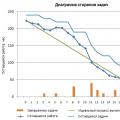Who is a strategic investor
Today we will talk about who a strategic investor is, as well as how exactly he invests his available capital.
Investors who prefer strategic investing are called strategic investors. Strategic investing differs from the usual portfolio investing in the goals the investor faces.
Strategic investor. Basic goals
A strategic investor in some sources is called an active investor who uses available capital to acquire a large block of shares in a particular enterprise. Investors of this type are primarily interested in stakes that allow them, at a minimum, to participate in the management of the company.
 Large strategic investors who can boast of having serious capital prefer to acquire controlling shares (50%+1), which allow them to directly manage the company.
Large strategic investors who can boast of having serious capital prefer to acquire controlling shares (50%+1), which allow them to directly manage the company.
Strategic investing is characterized by a low level of diversification, which makes this type of investment quite risky. This state of affairs is due to the fact that in order to acquire a package of securities that allows one to manage a company, the investor has to use most, and in most cases, all of the capital available to him.
Due to the investment features described above, a strategic investor must have extensive experience and high qualifications to achieve the desired level of income and reduce the likelihood of bankruptcy. Strategic investors carefully prepare for each transaction. During preparation, special attention is paid to legal support of the concluded transaction, verification of documents, etc.
 A strategic investor can be either an individual or a legal entity. Practice shows that in most cases, the role of strategic investors is played by transnational corporations that acquire controlling stakes in the securities of enterprises operating in certain industries.
A strategic investor can be either an individual or a legal entity. Practice shows that in most cases, the role of strategic investors is played by transnational corporations that acquire controlling stakes in the securities of enterprises operating in certain industries.
After we have received a detailed answer to the question of who is a strategic investor, we will try to consider what the main goals of strategic investing are.
Goals of a strategic investor
The main objects of strategic investment are the enterprises whose securities are acquired. As a result of the transaction, the company receives the amount of funds necessary for further development, as well as an effective management system.
After concluding a transaction to purchase securities, the strategic investor receives the right to participate in the management of the organization. If an investor acquires a controlling stake in the securities of an enterprise, then he can independently decide what kind of products it will produce. In addition, he has the opportunity to work to reduce production costs, as well as expand the range of manufactured goods.
 In some cases, a controlling stake in an enterprise is acquired with the aim of eliminating it as a competitor. In this case, the potential of the enterprise can be used to achieve the goals of the strategic investor, or the company is closed and all its employees are fired.
In some cases, a controlling stake in an enterprise is acquired with the aim of eliminating it as a competitor. In this case, the potential of the enterprise can be used to achieve the goals of the strategic investor, or the company is closed and all its employees are fired.
From all that has been said above, we can conclude that the goals of strategic investing differ significantly from the tasks that conventional portfolio investing allows us to solve.
Due to the nature of strategic investing, it is almost impossible to perceive it as a method of generating passive income.
As a striking example of strategic investment, we can consider the entry of the international corporation Nestlé into the domestic market. This company, having serious financial capabilities, acquired small domestic enterprises engaged in the production of confectionery products and introduced advanced marketing and production technologies to them.
Such actions allowed the corporation to quickly increase production capacity in the domestic market, as well as get rid of a huge number of small competitors. Thus, the company managed to take a dominant position in the confectionery segment of the domestic market in a fairly short time.
Naturally, most domestic investors cannot boast of capital sufficient for strategic investment in large enterprises. Despite this, even a novice investor can feel like a strategic investor. Currently, there are investment funds on the domestic market that specialize in strategic investing. By purchasing a share in a mutual fund, you can participate in strategic investing.
 Discounted payback period
Discounted payback period Methodological aspects of project management
Methodological aspects of project management Scrum development methodology
Scrum development methodology